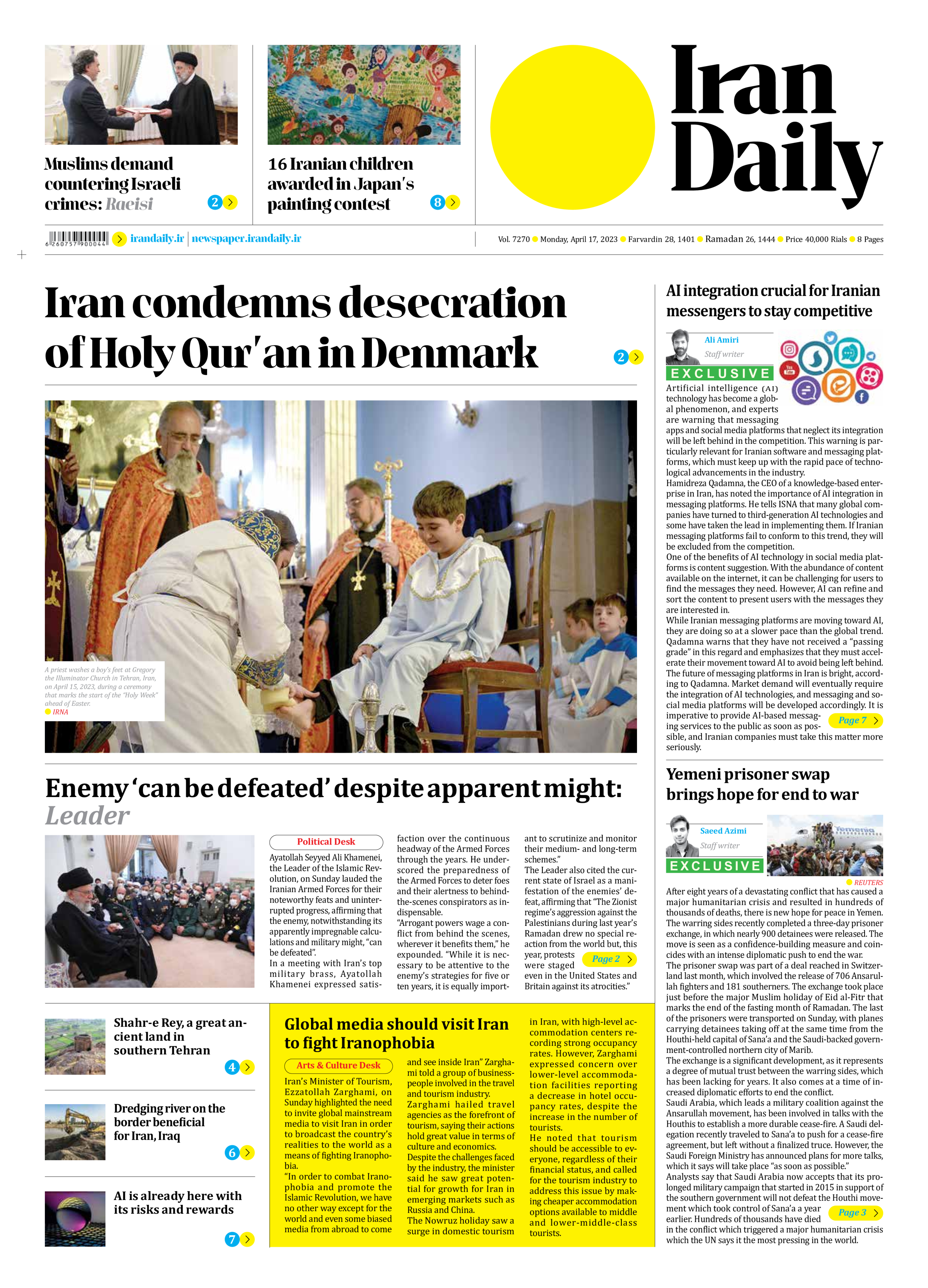
Yemeni prisoner swap brings hope for end to war
Saeed Azimi
Staff writer
After eight years of a devastating conflict that has caused a major humanitarian crisis and resulted in hundreds of thousands of deaths, there is new hope for peace in Yemen. The warring sides recently completed a three-day prisoner exchange, in which nearly 900 detainees were released. The move is seen as a confidence-building measure and coincides with an intense diplomatic push to end the war.
The prisoner swap was part of a deal reached in Switzerland last month, which involved the release of 706 Ansarullah fighters and 181 southerners. The exchange took place just before the major Muslim holiday of Eid al-Fitr that marks the end of the fasting month of Ramadan. The last of the prisoners were transported on Sunday, with planes carrying detainees taking off at the same time from the Houthi-held capital of Sana’a and the Saudi-backed government-controlled northern city of Marib.
The exchange is a significant development, as it represents a degree of mutual trust between the warring sides, which has been lacking for years. It also comes at a time of increased diplomatic efforts to end the conflict.
Saudi Arabia, which leads a military coalition against the Ansarullah movement, has been involved in talks with the Houthis to establish a more durable cease-fire. A Saudi delegation recently traveled to Sana’a to push for a cease-fire agreement, but left without a finalized truce. However, the Saudi Foreign Ministry has announced plans for more talks, which it says will take place “as soon as possible.”
Analysts say that Saudi Arabia now accepts that its prolonged military campaign that started in 2015 in support of the southern government will not defeat the Houthi movement which took control of Sana’a a year earlier. Hundreds of thousands have died in the conflict which triggered a major humanitarian crisis which the UN says it the most pressing in the world.
The recent prisoner swap and truce negotiations come a month after Persian Gulf heavyweights Saudi Arabia and Iran agreed to re-establish diplomatic ties, sparking a wave of rapprochement across the troubled region.
The exchange of prisoners is an important first step toward resolving the conflict in Yemen, and it holds the promise of resolving other regional contentions and dissensions. The restoration of Tehran-Riyadh ties could lead to the closure of a number of regional cases including the gradual return of Syria to the Arab League. It could also lead to greater convergence among Iran, Egypt, and Jordan, as well as the resumption of diplomatic relations between Iran and Bahrain after a hiatus of seven years.
However, there are still many challenges to overcome before a lasting peace can be achieved in Yemen. The UN-brokered cease-fire that started in April 2022 has sharply reduced casualties, but it expired in October and fighting has largely remained on hold. There are also concerns that the cease-fire could break down at any moment, as it has been prone to minute-by-minute violations in the past.
Moreover, the Houthis generally object to Saudi mediation, insisting the neighboring kingdom has played a central role in the war. The Houthis seized Sana’a in 2014, prompting the Saudi-led intervention the following year. The conflict has been complicated by the involvement of other regional and international actors.
Despite these challenges, the recent prisoner exchange and the diplomatic efforts to end the war offer a glimmer of hope for Yemen. The swap represents a degree of mutual trust that could be deepened through negotiations and outcomes. If successful, these efforts could address the lack of faith that has given rise to frequent breaches of the cease-fire over the past year.
The willingness of both sides to participate in the peace process and their commitment to continuing negotiations is a promising sign. It is important for the international community to continue supporting efforts to end the Yemeni crisis and to work toward a peaceful resolution that prioritizes the well-being of the Yemeni people.







